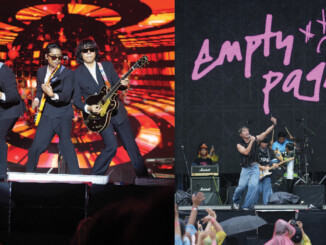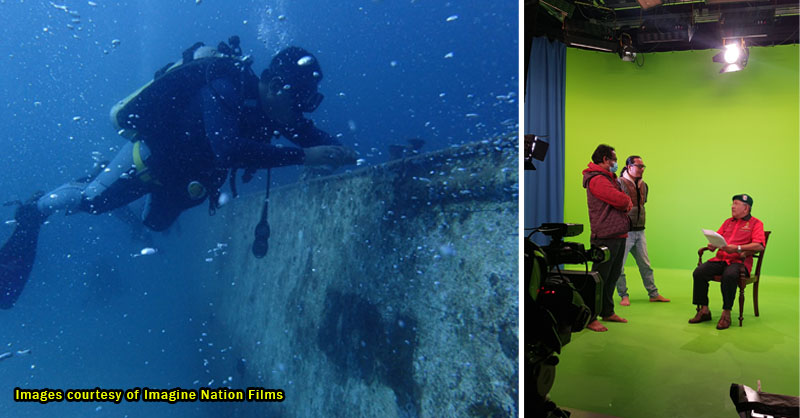Making an Indie English-language Film in Malaysia? Siao ah??
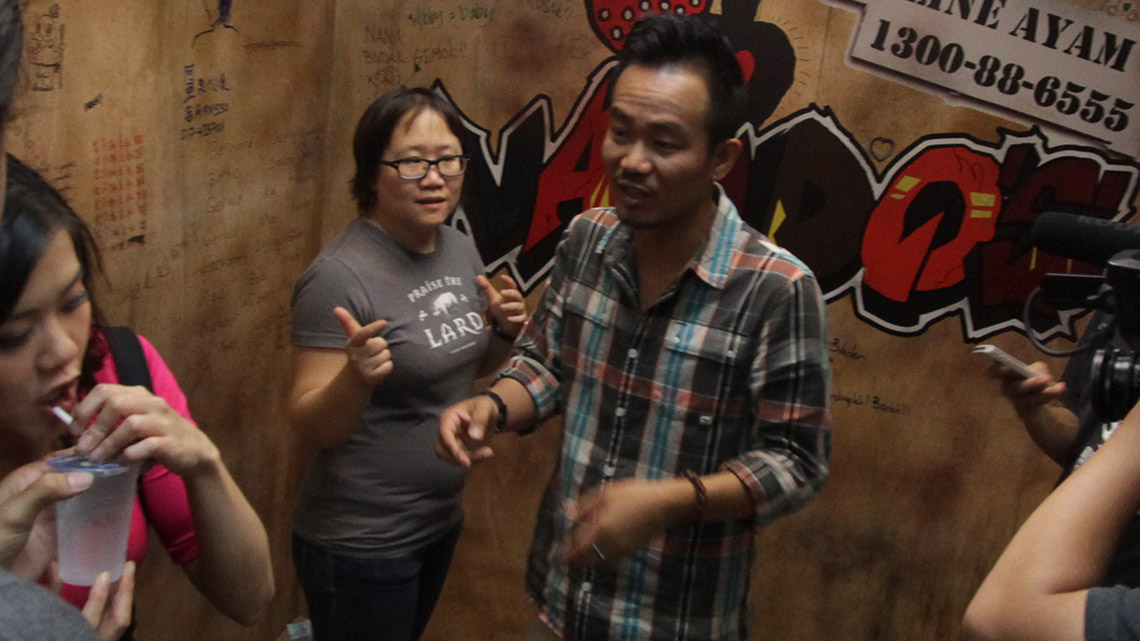
- 212Shares
- Facebook204
Sometime last week, we spoke to Bernice Low, a first-time director who’ll be releasing her first ever feature length film on November 27th. It’s called In Between Floors, a situational comedy-drama about a Cinapek Ah Beng getting stuck in an elevator with an urbanite “Banana” (Chinese person who does not speak Chinese). But we didn’t want to know about the movie so much… what we wanted to know was why she decided to make an indie movie in the first place, and for that matter, why anyone would want to make one.
*If you wanna skip the TLDR and want to know if this movie is worth watching, click here*
Let’s start this off with a quick poll – What kind of person do you think would make an Indie film?
Here’s Bernice’s answer:
“After having done this I’m convinced that only crazy people will do it”
These are the first words Bernice said to us when we met up with her over coffee and an interview last week. So, backtracking a little bit, we initially got in touch with her a couple months ago when she sent us a preview –
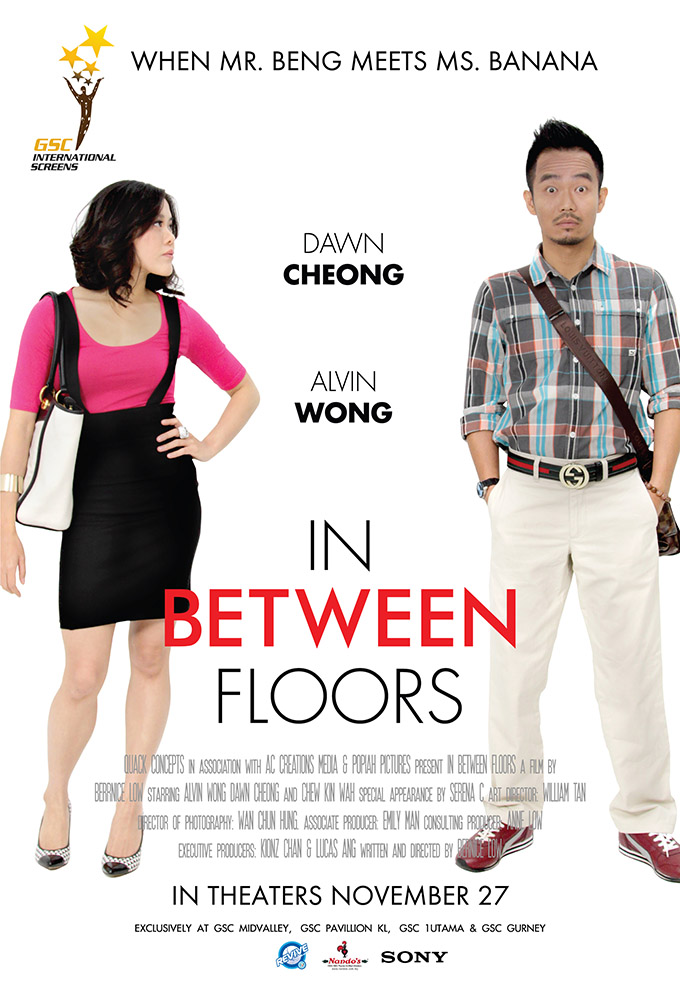
What we saw made us excited to watch it, but what Bernice told us about it made us curious to see how she did it. It seems that every decision made towards this movie would indicate all sorts of crazy – It’s in English, is dialogue driven, and does not involve ghosts, rempits, or convoluted storylines; in a way a complete opposite of what we’d usually expect from a locally-made movie. And on top of allllll that, it was made largely with Bernice’s own money.
“The budget and using my own money ties it up there in the insanity scale” – Bernice
So, here’s the other stuff we found…
A director has to be able to do EVERYTHING!
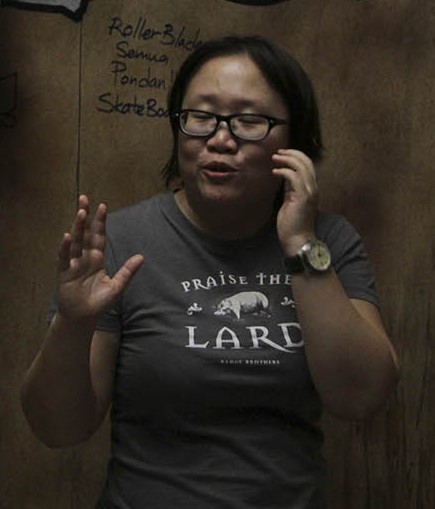
Well, actually, the word that struck us when we met Bernice in person wasn’t “Crazy” but “Assured.” Getting into our interview at a somewhat-quiet coffee joint in Section 17 PJ, Bernice’s rapidfire stream of recollections and opinions on her filmmaking experience belies the fact that this is her first movie.
Bernice says that she’s always been a writer, making most of her money by ghostwriting books, as well as writing articles and scripts for TV and animation. She has also taught Chinese astrology (!!!) and created mobile content.
With her rather broad range of talents, we were inclined to ask how she got around to deciding to make a movie. Was it inspiration from her scriptwriting work? Did her celestial dragon coincide with the fist of the north star? Or did she just happen to wake up one day and decide to make a movie?
“Well, there are two different stories on how the let’s-make-a-movie idea came about. Back in 2012, I had a conversation with a friend about how, after reaching a certain age, we had to look into cash buffers. When I mentioned how much I had, he said that it was probably better for me to use that money as an investment for something else. That planted the seed.” – Bernice
She…. never actually told us the other story. :/
A director has to be able to build an elevator!
Bernice says that her previous work experience had benefitted her well, with her scriptwriting experience giving her access into the process of filmmaking – familiarizing her with the “terminology people in the industry use”, the mobile content creation helping her understand how the film distribution system (how cuts from the ticket sales are taken) works. She had a script (written that year), a vision, and the budget (sorta) but what she didn’t have was a cast and crew (very important). This forced her to abandon her initial plans to start shooting in 2012.
However, Bernice pushed on with the idea, reworking the script while simultaneously looking for a producing partner and fine tuning her ideas. For instance, most of us would think that shooting a movie that mostly takes place in an elevator means looking for an actual elevator, right? So did Bernice. In fact, her initial idea was to “borrow” an elevator at a shopping mall and completing the scenes in one night. She was talked out of it, and realized why when they actually started shooting. Stuff like removable walls were needed to fit a camera in, shoots actually take a reallllly long time, and can you imagine being stuck in a metal box for hours on end?
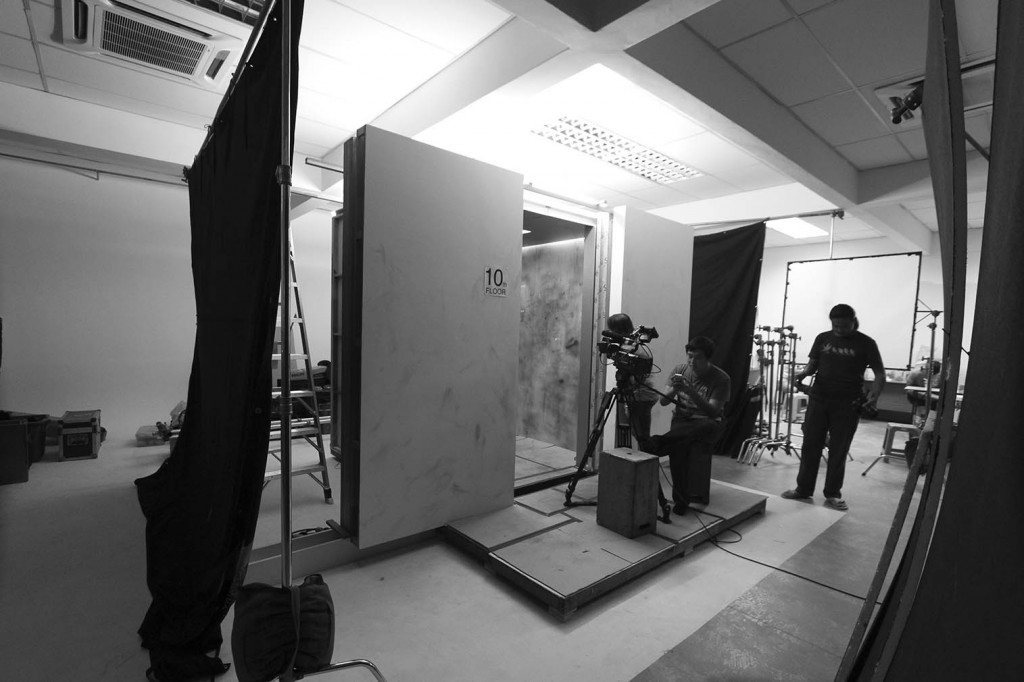
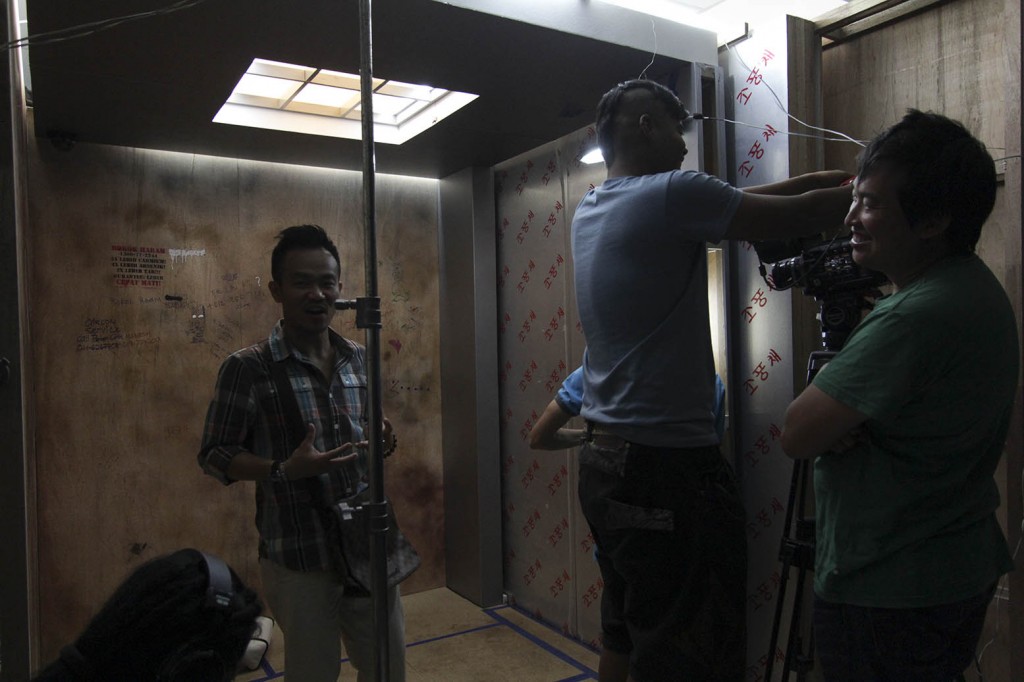
She eventually found a producing partner in 2013, along with her two principal actors, Dawn Cheong and Alvin Wong. They were good to go!
A director has to be able to make a movie with RM90k!*
*Note: RM90k is very little in movie budget terms
Well actually, Bernice confesses that her initial budget was RM40k but that kinda doubled over time. In fact, if she’d paid for everything the entire movie would have cost RM300k.
Wait, so how did she get a RM220k discount?
In Bernice’s words:
“Bargain, bargain, bargain. You can get some things but never everything”
From crew to cameras, Bernice knew that in order to get companies and people to chip in, she had to
- Be clear on what they can and cannot offer in return
- Make a list of what they can and cannot save on
- Be humble, yet assertive
- Be tactical
- Jumping on opportunities that luck and the universe brings
- Plan, plan, plan; run, run, run
The one thing that Bernice said she desperately wanted to avoid was for the sponsor to “own the film” as she didn’t want to compromise her artistic integrity by either putting a product placement every few minutes or make changes to the script. Also, she had to make sure that everyone involved was paid, watered, and fed.
“We tried to get money at first, but soon found there was little chance … Sponsors are straightforward- more demanding with money, less so with no money [involved]”
For instance, most of the crew were first-timers so it wasn’t so much the money but an advancement in their career. The next thing was that she didn’t want to give them bad food. As it happens, a friend of hers worked in Nando’s and got her in touch with them. While Nando’s said upfront that they weren’t going to give cash, they readily agreed when Bernice clarified that all she wanted was food.
“That was the fastest deal ever, in under 30 minutes. Nando’s were the first people that came on board”
So basically Nando’s agreed to give them chicken meals for four days in less than the time it takes for a pizza to be delivered.
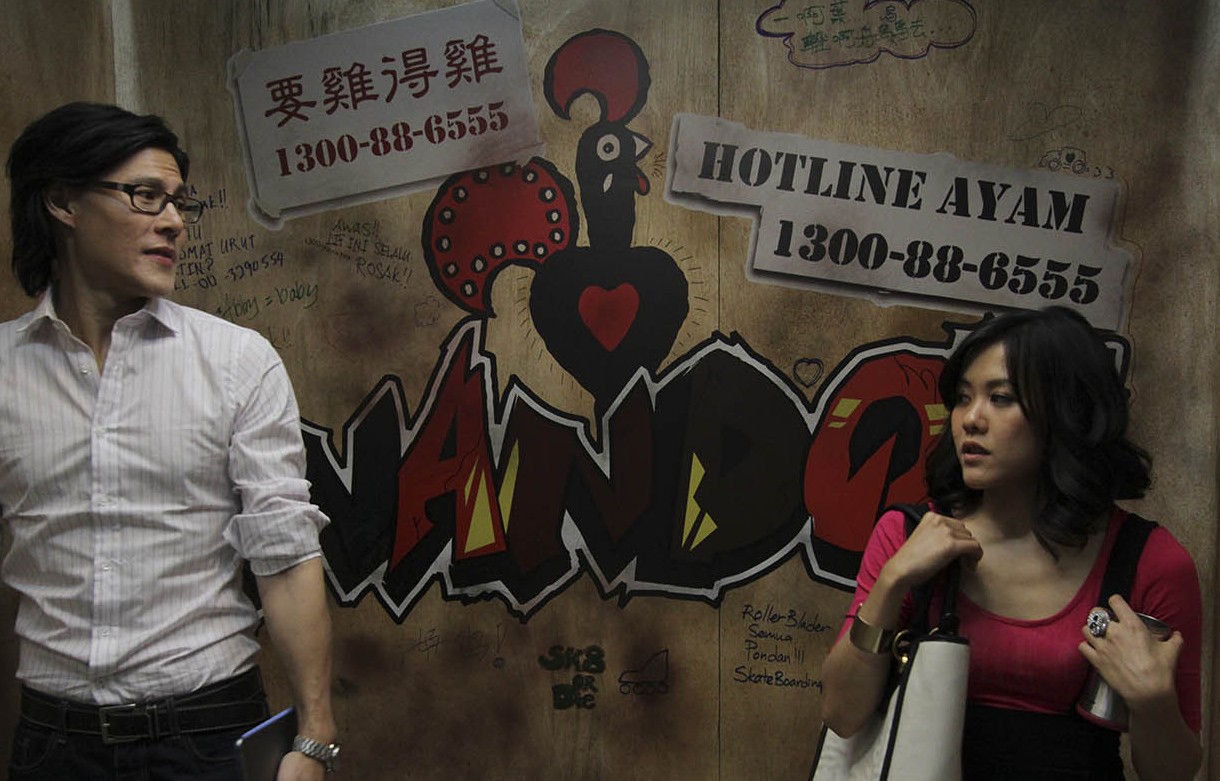
They also got Permanis to sponsor water and Revive isotonic drinks, Sony for a camera, and Nokia for mobile phones. And again, Bernice knew how to ask
“[Nokia] was quite happy to lend us the phones. I didn’t ask them to give me the phones, I asked to borrow them.”
We guess you could say that they went from Nokia to Gotkia. Heh.
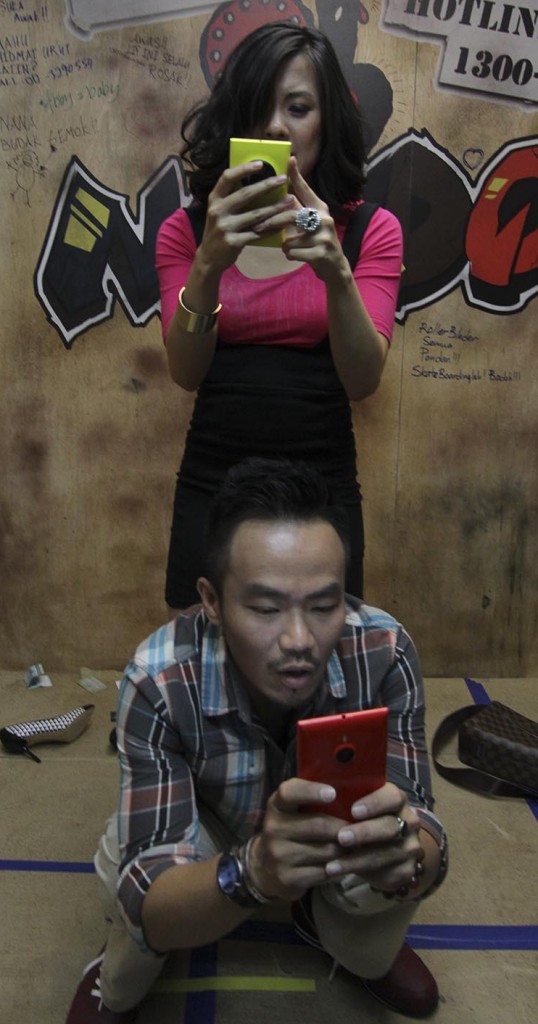
In regards to luck, Bernice tells us of the time they were at FOS buying Alvin’s wardrobe, but they still didn’t have shoes. As they were leaving, they bumped into a friend who worked at Puma and boom! Shoes!
Bernice also made sure they kept themselves accountable, regularly sending the sponsors pictures and updates on the film’s progress.
A director has to be able to think ahead when they can, make stuff up when they can’t!
From the course of the shoot and talking to people, Bernice tells us of the tricks that she’s picked up, such as getting small cups of water instead of bottles as people were likely to misplace or mix them up after a few sips. She also said strong coffee and an air-conditioned rest room is a must, though if you have a stash of premium coffee, make sure it’s well-hidden (Dawn and Alvin found her jar of Davidoff).
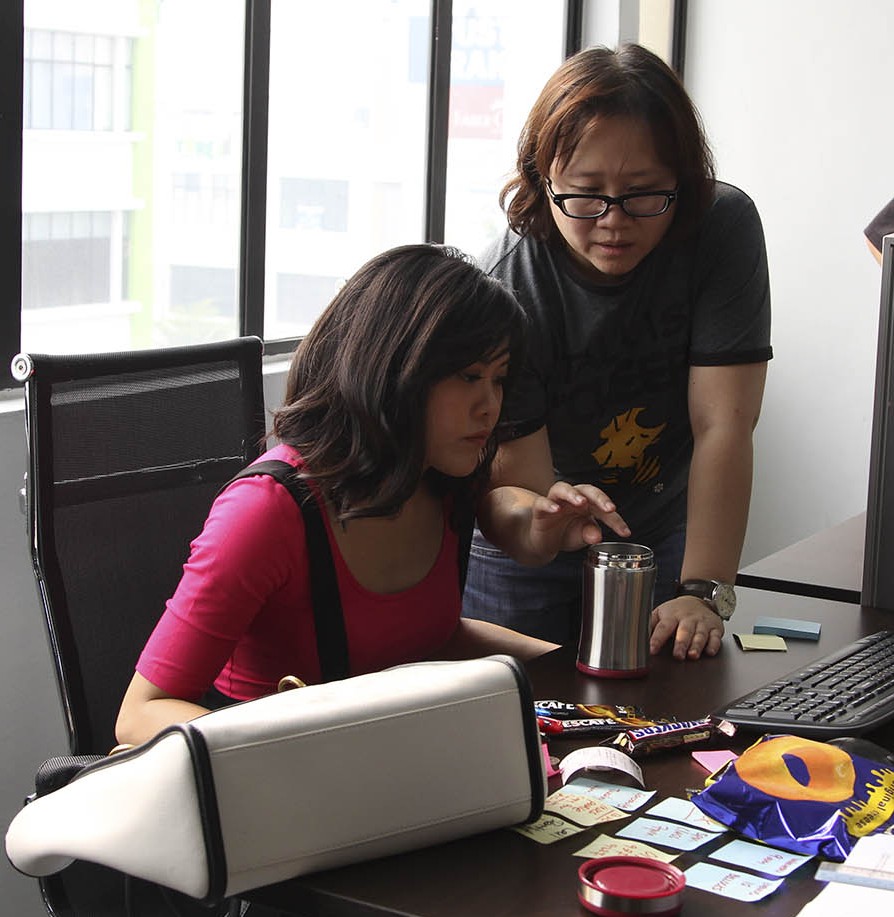
Sometimes, though, unexpected things can happen. Let’s take actual incident as a test of your problem solving skills:
Director proficiency test #1
You’re the director. At some point during the shoot, the actress removed her (very noticeable) bracelet during a break and forgot to put it back on. By the time this is noticed, you have already spent a few hours shooting several scenes. What do you do?
“Rather than reshoot hours of footage, we shot one extra scene with Dawn removing her bracelet – Bernice”
If you answered it right, congratulations! You’re either a budding director or just plain crazy!
Bernice also says that due to a lot of the crew being first-timers, she was quite conscious of the fact that she couldn’t demand and had to keep her cool at all times. Quite a challenge considering that she had to also solve issues from mess-ups like the above and (as she puts it) making all decisions from camera angles to “When is lunch?”
A director has to have the nerves of a zen monk!
Okay, here’s another true scenario question:
Director proficiency test #2
Your shoot is done, now all you have to do is to do the editing and prepare it for the cinema screening. You later find that the dude editing the footage is severely ill, and when you hire someone else to edit the last 10% that he hasn’t finished, you find that the file was corrupt and it’s actually 40% unfinished. What do you do?
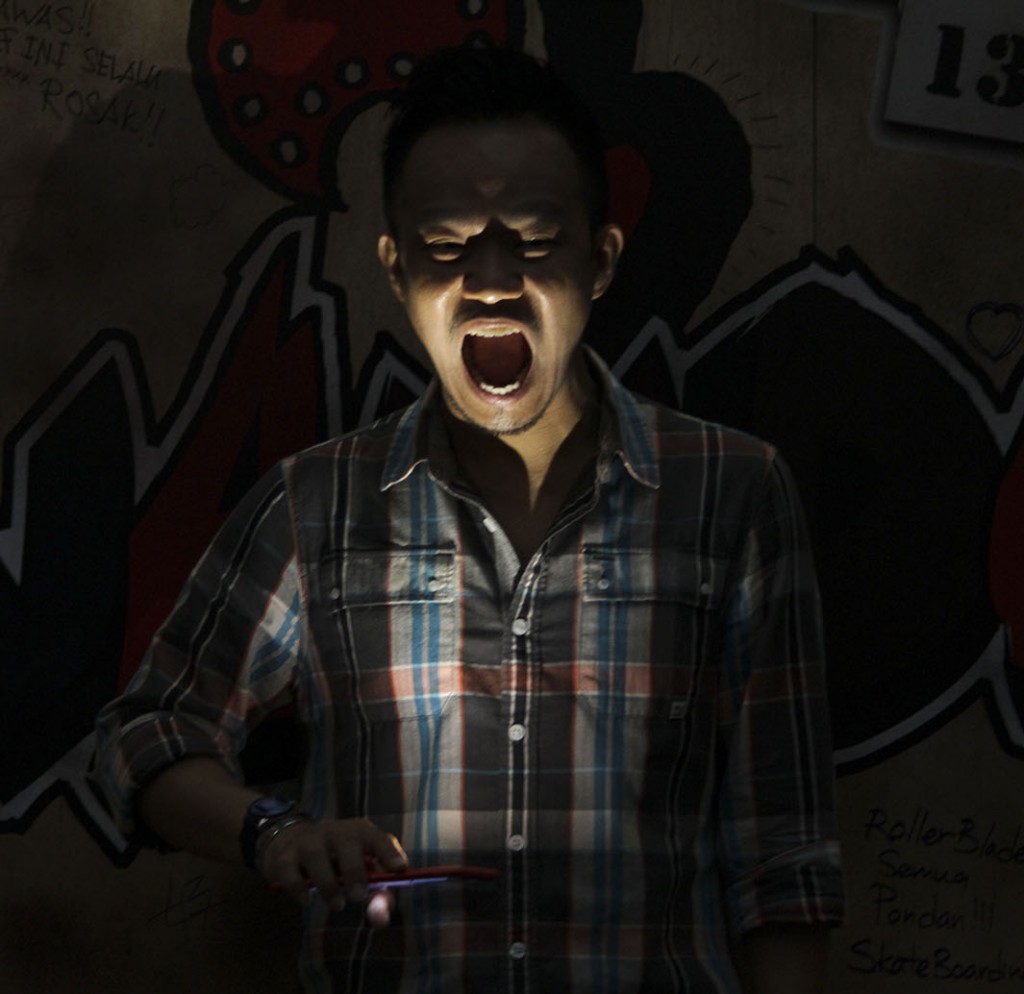
If there was one thing Bernice wasn’t as prepared for, it was the part after the shooting was completed. Also called post-production, it involves the editing of the raw footage, getting it past the censorship board,
“I’m pretty much the dispatch girl now. I’m doing everything!”
….and spending moar money. A lot more than initially expected. In fact, of the RM90k, 25k went to this because everything comes with a cost. Basically,
Submitting to censorship board = $
Making prints of the fim = $$
Technical compliance for cinema/astro/DVD formats = $$$
and any delays, such from the dude who fell sick, = $$$$
So can people continuously make movie$ on a RM100k budget?
Answer:
“Yes, but chances are that it’ll be sh!t“
Clarifying how, of course, a filmmaker can work around it with a good story, interesting camera work, and all that stuff that disguise the lack of a budget, Bernice also says that
“The beauty of having done this once is that I’ve come to realize that the difference between a RM100k budget and a RM1 million budget is one zero. The process is the same, just that the stress (with Rm100k) is more la”
A director has to be a masochist!
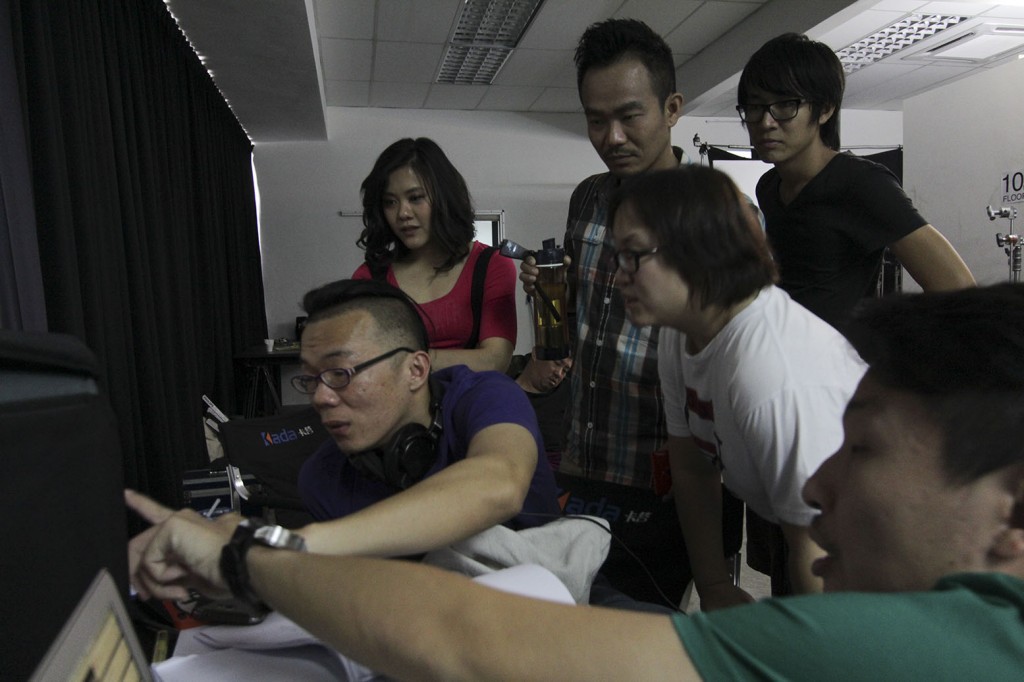
“What surprised me is how, when I looked back, I can’t actually recall not enjoying the process. Even the past 10 [post-production] days.”
When we asked if she planned to submit it to any film festivals, she says
“Maybe just a couple. These festivals are quite time consuming… Might as well take the time to make the next one“
Next one. Next. One.
Maybe Bernice isn’t crazy at all. Maybe, she’s just masochistic.
EXTRA: Is the movie any good?
Well, we won’t comment on that one yet since we haven’t seen the full movie but according to Bernice, the censorship board really enjoyed watching the film.
We will be catching the press screening of this tomorrow (at time of writing) and will give our honest opinion of it once that’s done.
We caught the press screening this morning (“we” being CILISOS staff writers UiHua and Jo-Lyn). So, in interest of complete transparency, UiHua knows the background details (budget, constraints, actress Dawn Cheong) while Jo-Lyn does not.
Here’s UiHua’s thoughts:
Im’ma keep this short. Good dialogue and acting aside, the fact that a movie mostly made up of dialogue between two people in a single setting with no pewpewpew special effects managed to keep my attention for 90 minutes is, to me, the biggest win.
Here’s Jo-Lyn’s thoughts:
LOL! Hey I can relate to that culture – Bengs and Bananas. It’s so funny that you can break Malaysian Chinese down into smaller sub-cultures.
I thought the acting was really good, like there weren’t any kayu moments. It’s almost like having an actual conversation with my own friends.
Definitely enjoyed the movie overall. Can’t say there’s anything about it that I don’t like except that if I were someone with ADHD, then problem la.
I’d defo recommend it to Malaysians (and even Singaporeans come to think of it) coz we all can relate. The Beng and Banana culture, swearing in your mother tongue, Malaysian ‘punctuality’, right down to those friggin scribbles on on the elevator walls.
You can get your tickets from the GSC website by clicking on this needlessly long sentence.
- 212Shares
- Facebook204


